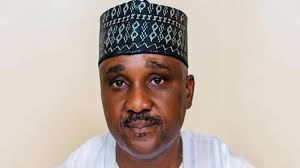
The recent dismissal of Fegho Umunubo, Special Assistant to President Bola Tinubu on Digital and Creative Economy in the Office of the Vice President, has sparked widespread reactions from Nigerians across social media platforms. The move, announced without a detailed public explanation, has elicited a mix of praise, skepticism, ethnic commentary, humor, and criticism — reflecting the complex and diverse perspectives within the Nigerian populace.
Praise for Tinubu’s Decisiveness
Several Nigerians expressed strong support for President Tinubu’s decision, describing it as a “good development” and a sign of a no-nonsense leadership style. Comments such as:
“That is the president I voted for. No nonsense man. God bless Nigeria.”
“The dividend of Mr President working vacation is manifesting.”
“This man doesn’t joke with incompetence.”
These comments show admiration for what supporters see as a president committed to accountability and decisive action, even while abroad.
Ethnic and Regional Undertones Surface
A significant number of comments highlighted the ethnic dynamics perceived to underlie the decision, suggesting that Umunubo’s non-Yoruba background was a factor in his dismissal. Some pointed to the idea of a “government of Yoruba by Yoruba for Yorubas,” with remarks such as:
“Government of Yoruba by Yoruba and for Yorubas.”
“He must be telling the truth about the economy that is why he was sacked.”
“The man is not a Yoruba man, that’s why he was sacked.”
“Yoruba man to replace him tomorrow because we are in a Yoruba government.”
Others poked fun at the situation, noting how Umunubo’s name contains “Umu,” a typical Igbo prefix, yet he apparently survived two years in a Yoruba-led government without detection.
Skepticism and Criticism of the Sacking
Many Nigerians voiced doubts about the justification and transparency of the sack. Some speculated that Umunubo was removed for not aligning with political interests or for revealing uncomfortable truths about the economy. For example:
“Maybe he told him how to reshape the economy using digital means, which would affect funds kept for elections, so he was sacked out of anger.”
“Tinubu wouldn’t have sacked him if his name was Olu, Bayo, Ola, or Tunde.”
“Is this government really creative economically? Seems like the guy brought bad advice.”
“Nigeria government is a big scam if someone on leave can be sacked.”
Several comments also implied the sacking reflects deeper issues of governance, with some calling for clearer communication from the presidency.
Humorous and Sarcastic Responses
True to Nigerian online culture, humor and sarcasm flavored many reactions, helping people cope with political uncertainty:
“Is Mr. President’s spirit located in Nigeria or Europe? Somebody please give me his phone number.”
“Make Reno Omokri use that office to hold body now.”
“Tinubu is working remotely from France, baba is working.”
“Office don show for Reno.”
Some joked about Umunubo possibly leaking information to opposition or the media, or about the “working leave” status, highlighting contradictions in governance.
Calls for Unity and Hope for Progress
Amid the mixed reactions, a few comments encouraged Nigerians to rise above ethnic and political divides and focus on national progress:
“Nigeria shall be great again.”
“Government of national competence.”
“I remain loyal to my beloved president.”
Others hoped that the creative and digital economy initiatives would continue to grow despite leadership changes.
The public response to Fegho Umunubo’s dismissal reveals a nation grappling with complex political realities — a blend of hope, skepticism, ethnic tension, humor, and loyalty. While some Nigerians applaud President Tinubu’s firm approach to governance, others question the motives and potential consequences of removing a key figure in the digital and creative economy sector.
As the government navigates this transition, many await further clarity on the future direction of digital innovation and creative industry support in Nigeria.




